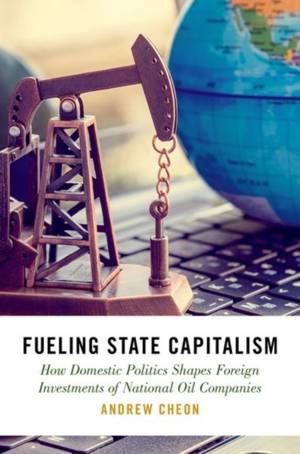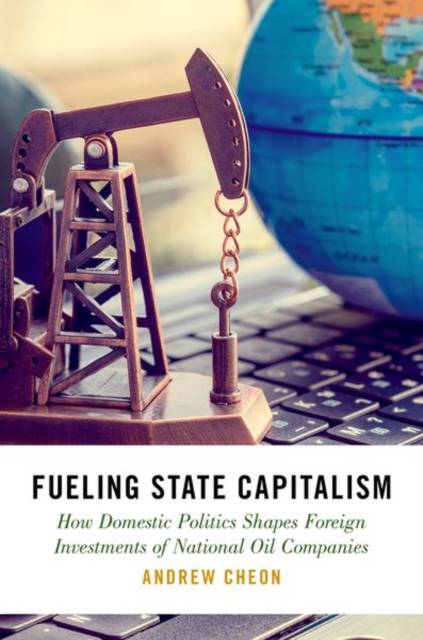
Door een staking bij bpost kan je online bestelling op dit moment iets langer onderweg zijn dan voorzien. Dringend iets nodig? Onze winkels ontvangen jou met open armen!
- Afhalen na 1 uur in een winkel met voorraad
- Gratis thuislevering in België vanaf € 30
- Ruim aanbod met 7 miljoen producten
Door een staking bij bpost kan je online bestelling op dit moment iets langer onderweg zijn dan voorzien. Dringend iets nodig? Onze winkels ontvangen jou met open armen!
- Afhalen na 1 uur in een winkel met voorraad
- Gratis thuislevering in België vanaf € 30
- Ruim aanbod met 7 miljoen producten
Zoeken
Fueling State Capitalism
How Domestic Politics Shapes Foreign Investments of National Oil Companies
Andrew Cheon
€ 82,95
+ 165 punten
Omschrijving
In the late 1990s, governments began investing hundreds of billions of dollars in foreign oil and gas assets through their national oil companies (NOCs), raising concerns about a "resource war" and asymmetric interdependence. Most critics perceive the foreign investments of NOCs as politically driven and inefficient. In Fueling State Capitalism, however, Andrew Cheon sees these investments as commercial ventures by ambitious state-owned enterprises seeking to become global players amid rising oil prices. Some have invested aggressively abroad, often in politically risky destinations, whereas others have been more moderate in their ambitions. The NOCs' capacity to pursue foreign investments varies, as Cheon argues, according to regime types and bureaucratic structures of their governments. Using principal agent theory, Cheon shows that competition among NOCs' principals at two different levels of government--national and bureaucratic--conditions the foreign investments of NOCs. While competition between the chief executive and opposition parties can limit democratic governments' capacity to tolerate failed investments abroad, non-democratic governments are less constrained. An overlap of authority among bureaucratic institutions can also encourage counterproductive behavior among NOCs, whereas a clear line of authority among them can prevent it. Looking at investments from 79 countries from 2000 to 2013, as well as case studies of China, India, Brazil, Norway, and Russia, Fueling State Capitalism unpacks the role of institutions, both national and bureaucratic, in shaping the global expansion of national energy firms. Moreover, Cheon probes the energy security motivations of NOC investments and the origins of bureaucratic structures. Based on the experience of NOC global expansion, Cheon concludes that bureaucratic institutions will be critical in achieving decarbonization that not only allows governments to meet their political objectives, but also helps NOCs ensure their long-term commercial viability through a managed transition to renewable energy.
Specificaties
Betrokkenen
- Auteur(s):
- Uitgeverij:
Inhoud
- Aantal bladzijden:
- 200
- Taal:
- Engels
- Reeks:
Eigenschappen
- Productcode (EAN):
- 9780197672884
- Verschijningsdatum:
- 3/04/2023
- Uitvoering:
- Hardcover
- Formaat:
- Genaaid
- Afmetingen:
- 162 mm x 239 mm
- Gewicht:
- 435 g

Alleen bij Standaard Boekhandel
+ 165 punten op je klantenkaart van Standaard Boekhandel
Beoordelingen
We publiceren alleen reviews die voldoen aan de voorwaarden voor reviews. Bekijk onze voorwaarden voor reviews.











